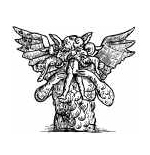
Betrayal or Integrity? The Choice Is Yours
GUEST COLUMN
“Betrayal” is a powerful word, the poignancy of which is not easily or adequately articulated, even on the pages of an unabridged dictionary: “To deliver into the hands of an enemy by treachery or fraud, in violation of trust; to violate by fraud or unfaithfulness.” To capture the full meaning of betrayal requires literary and historical knowledge or lived experience. Consider the gut-wrenching betrayals of the likes of Sir Thomas More by Richard Rich, William Wallace by Robert the Bruce, Othello by Iago, Julius Caesar by Brutus, Jesus Christ by Judas Iscariot. These stories and events capture the full meaning of betrayal in a way that a dog-eared page in Webster‘s cannot.
A woman eighteen weeks pregnant was lying on the operating table before a young female doctor. By coincidence, the doctor was also eighteen weeks pregnant and would, in a matter of months, welcome her child into the world. Turning to the patient, she dutifully began the surgery that had been scheduled — an abortion. This physician, by means of a popular pro-abortion blog, described the graphic and shocking details of her experience:
I realized that I was more interested than usual in seeing the fetal parts when I was done, since they would so closely resemble those of my own fetus. I went about doing the procedure as usual…. I used electrical suction to remove the amniotic fluid, picked up my forceps and began to remove the fetus in parts, as I always did. With my first pass of the forceps, I grasped an extremity and began to pull it down. I could see a small foot hanging from the teeth of my forceps. With a quick tug, I separated the leg. Precisely at that moment, I felt a kick — a fluttery “thump, thump” in my own uterus….There was a leg and foot in my forceps, and a “thump, thump” in my abdomen. Instantly, tears were streaming from my eyes. I felt as if my response had come entirely from my body, bypassing my usual cognitive processing completely…. It was an overwhelming feeling — a brutally visceral response — heartfelt and unmediated by my training or my feminist pro-choice politics…. It was one of the more raw moments in my life.
This disturbing “raw moment” reveals the macabre reality of what happens in abortion clinics throughout the world. Every ounce of this doctor’s body — and her baby’s body — reeled at what she was doing, remonstrating that her actions were evil. This physician’s experience reveals that the child she carried in her womb was a conscious and sentient human being. So too, then, the child whose life she took. No euphemism bandied about in the abortion “debate” can completely obscure this reality. Abortion is not “preventative health,” “a choice,” “a woman’s right,” “reproductive medicine,” or “health care.” It is one thing and one thing alone — murder of the most gruesome sort. And yet, this doctor and mother’s experience did not hinder her from continuing to dismember and kill not only this one but other innocent, vulnerable, and dependent human beings. She writes, “Doing second trimester abortions did not get easier after my pregnancy; in fact, dealing with little infant parts of my born baby only made dealing with dismembered fetal parts sadder.”
You May Also Enjoy
All but the last two mysteries of the Rosary are taken directly from Scripture, and even the Assumption and Coronation are “veiled” there in the Prophets.
My family being away, I am alone and come home to a house unchanged from how I left it in the morning. So, I decide to go to the Wednesday-evening Rosary at the chapel.
She who shared the highs in our Lord's life shared as well in His rejection. There is a striking similarity between the indignities suffered by Mother and Son.

